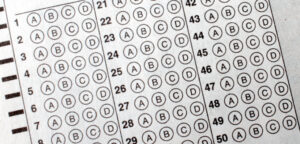
Improving the Quality of Machine-Gradable Questions
Tests provide one measure of our students’ learning according to the standards of the instructor and the field. But tests also affect our students socially, emotionally, and financially and influence their science-minded identities for years to come. We owe it to students to create fair













